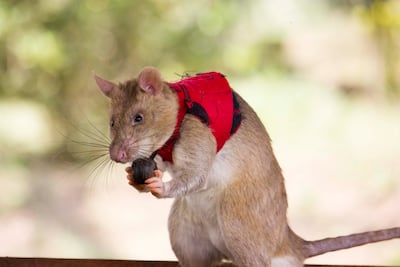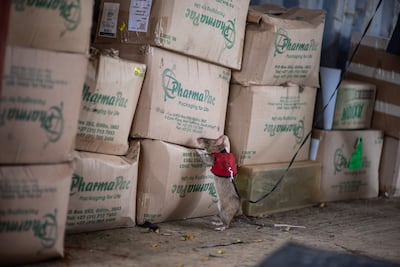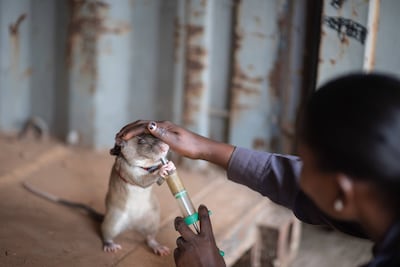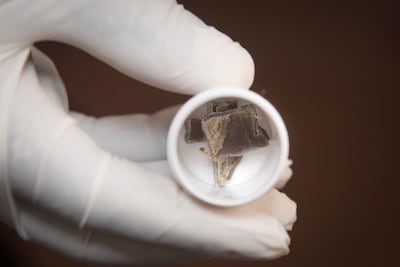Giant rats are being enlisted to help stop the wildlife trade by sniffing out items highly prized by traffickers, including pangolin scales, elephant ivory, rhino horn and African blackwood.
African giant pouched rats have previously been trained to find explosives and the tuberculosis-causing pathogen. However, a new study has shown the rodents could be a more cost-efficient way to combat poaching than sniffer dogs.
“Our study shows that we can train African giant pouched rats to detect illegally trafficked wildlife, even when it has been concealed among other substances,” said Dr Isabelle Szott, a researcher at the Okeanos Foundation, and first co-writer of the study published in Frontiers in Conservation Science.
“The rats also continued to detect the wildlife targets after not encountering that species for a long period,” added first co-writer Dr Kate Webb, an assistant professor at Duke University.

The wildlife black market is worth at least $23 billion annually and directly threatens species and their habitats.
Dr Szott believes that the rats could soon make an impact at transport hubs across the world, including in the Middle East and North Africa where poachers have used to smuggle illicit items such as ivory and animal tusks.
“I think that once rats begin operations and make their first 'bust' demand for them might increase quite rapidly”, Dr Szott told The National.

The rats – named Kirsty, Marty, Attenborough, Irwin, Betty, Teddy, Ivory, Ebony, Desmond, Thoreau and Fossey – were trained at APOPO Training and Research Centre in Tanzania.
They underwent several stages of training, the first of which hold their noses for several seconds in a hole in which the target scent was placed. When they correctly performed this ‘nose poke’ they were rewarded with flavoured rodent pellets.
The rats were also introduced to non-target odours, including electric cables, coffee beans and washing powder which poachers use to mask the scent of trafficked wildlife.

The rats also showed remarkable ability to remember smells, sometimes recalling scents they had not encountered for five and eight months. This suggests that their cognitive retention performance is close to that of dogs.
The researchers believe their proof-of principle-study shows that rats could be used by authorities around the world soon, with interest already emerging from France and Singapore.
Soon, the rats will be trained to scour areas that are difficult for humans or canines to operate, such as cargo holds in international ports and others where the illicit trade is often allowed to pass through unhindered.

The team was piloting a system where the rats wear custom-made vests with a small ball that contains a microswitch that emits a beeping sound when activated, alerting their handler when they have detected a target.
“The vests are a great example of developing hardware that could be useful across different settings and tasks, including at a shipping port to detect smuggled wildlife,” said Dr Webb.


